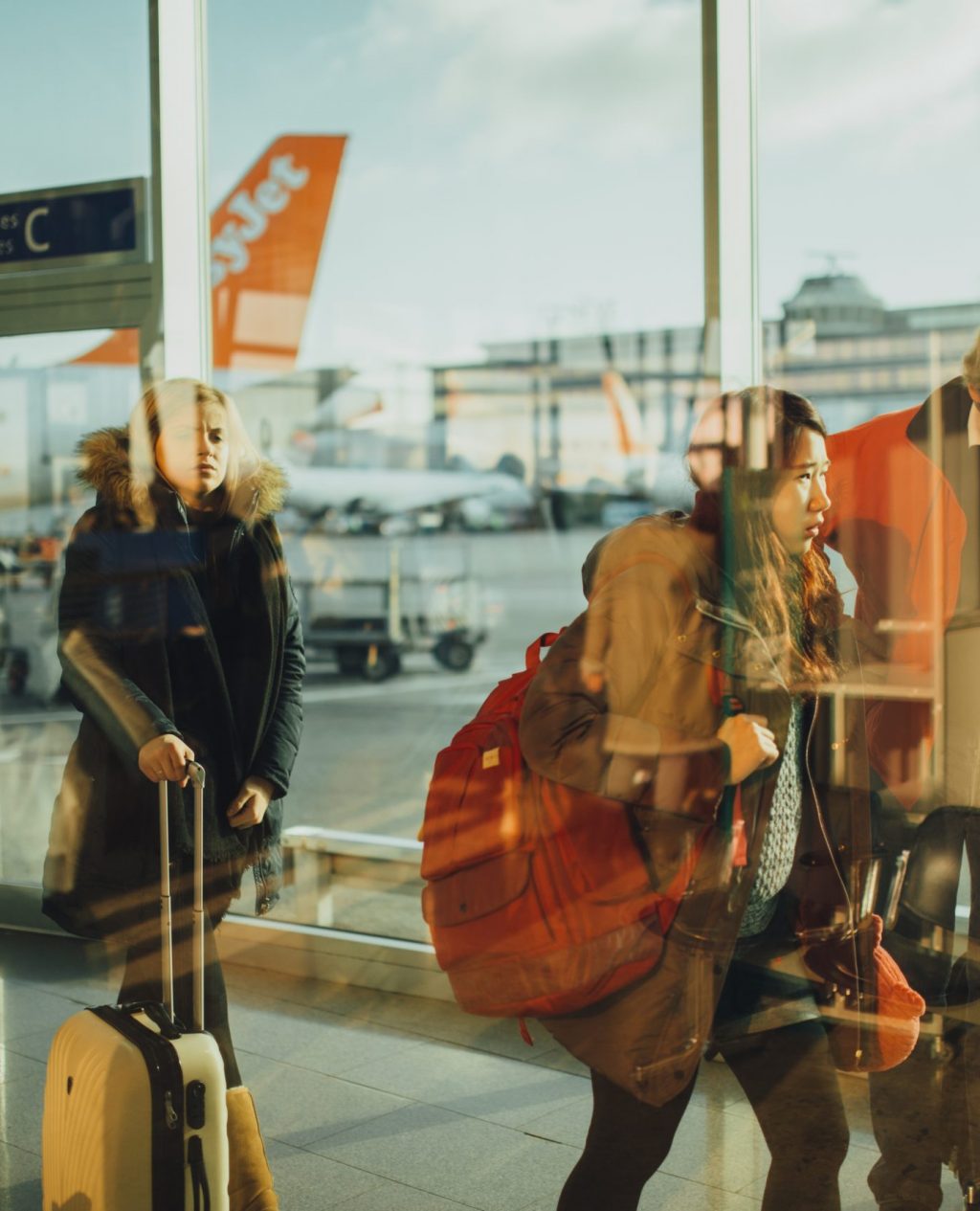
Digital nomads
‘Digital nomads’ are now allowed to spend up to 180 days in Argentina. In order to do so, they must fulfil the conditions below.
Requirements
Extension requirements
Information for foreign nationals who do require a tourist visa is available here.
DNM 758/2022, valid from 21 May 2022.
German Capoulat, Partner, Funes de Rioja & Asociados.
Temporary right of residence for Ukrainian nationals
On 11 March 2022, the Austrian government implemented a by-law granting a temporary right of residence in Austria to Ukrainian nationals, their close family members and other third-country nationals with international protection status, who have been displaced from Ukraine due to the armed conflict that started on 24 February 2022. It is based on the European Council Decision implementing the Temporary Protection Directive in the context of the invasion of Ukraine.
In addition, individuals covered by this right of residence can also apply for a working permit in Austria which is granted in a shortened procedure. The temporary right of residence is currently valid until 3 March 2023.
European Court of Justice rules on unlawful border controls
The European Court of Justice has ruled that the Schengen Borders Code must be interpreted to mean that a Member State cannot temporarily reintroduce internal border controls if their duration exceeds the overall maximum of six months and if there is no new threat that would justify a renewed extension.
However, the national Regional Administrative Court has not yet made a final decision on whether the national controls in question are legal, based on the European Court of Justice interpretation.
Cases C‑368/20 and C‑369/20, ruling available here.
Birgit Vogt-Majarek, Partner, SMS.law.
Current COVID-19 travel restrictions
Non-residents of Chile are required to complete a Health Affidavit prior to entering the country. Children under six are not required to complete this affidavit.
Homologation or validation of vaccines for foreign nationals is voluntary, but not having this will mean they cannot access the Chilean Mobility Pass.
A negative PCR test for entry into Chile is no longer mandatory but is recommended. Upon entry, travellers can be randomly selected by the health authorities to be tested.
COVID-19 travel health insurance is now voluntary
Marcela Salazar, Partner, Munita & Olavarría.
Current COVID-19 travel restrictions
COVID-19-related measures governing entry into the Czech Republic were revoked on 9 April 2022. Entry into the Czech Republic is no longer subject to any special conditions. It is now possible to enter the Czech Republic as before the COVID-19 pandemic, without completing a passenger locator form or presenting a vaccination or other certificate.
It is however still recommended travellers check the conditions of transport (including proof of infection-free status, i.e. test, vaccination, illness) with the rail, road or air carrier they are using.
Ladislav Mádl, Attorney-at-law, Randl Partners.
EU Covid teleworking social security measures end except for frontier workers
In the EU, only one social security system can apply (that of the working country). If simultaneous employed in more than one member state, an employee will be subject to the social security of their residence country if they work there for at least 25% of working time.
For the past two years, exceptional COVID measures meant European social security administrations did not take periods of telework in other member states as a result of COVID measures into account when determining the applicable social security system. These measures expired on 30 June 2022.
A transitional social security period remains in force for teleworking frontier workers until 31 December 2022. During this time, frontier workers’ teleworking in their residence state will not yet trigger a shift of the applicable social security system.
From a social security perspective this means there will be no change for the time being for teleworking frontier workers. Other employees could feel the impact of the expiry of COVID measures.
Sophie Maes, Partner, Claeys & Engels (Belgium).
Proposal to extend use of long-term visas
On 16 June 2022, the Finnish Government submitted a proposal to extend the group of people who may receive a long-term ‘D’’ category national visa, in line with the government strategy to increase education and work-based immigration.
According to the proposal, D visas could be issued to students, researchers, employees of certified employers, individuals in managerial positions in organisations and family members of these individuals. These visas would be issued in connection with a favourable decision on a residence permit, expediting entry and the start of work or studies in Finland. The provision on issuing long-term visas is due to enter into force on 1 April 2023.
Matias Tamlander, Associate Trainee, Dittmar & Indrenius.
Secondment abroad: rule changes from 1 July 2022
From 1 January 2022, the French administrative agency in charge of delivering A1 certificates for secondments abroad is Urssaf, the agency in charge of collecting social contributions.
From 1 July 2022, Urssaf will also be in charge of delivering individual derogations to the rules on secondment provided for in international social security regulations and agreements.
Save in exceptional circumstances, the request must be made within three months of the end of the initial assignment or the start of the assignment, justifying the request. Requests will be examined taking into account, in particular, the interests of the person for whom this derogation is requested.
Organisations will need to take this change into account in their secondment process.
Guillaume Bordier, Partner, Capstan Avocats.
Regulating digital nomads
Under new rules, third-country nationals who are self-employed, freelancers or employees can work remotely in Greece for employers or customers outside Greece for up to 12 months on a national visa.
These ‘digital nomads’ may be accompanied by their family members, but they are not allowed to provide dependent work or practise any form of financial activity in Greece during their stay.
Provided that the conditions for granting a national entry visa are met, a third-country citizen and his or her family members may also be granted a two-year residence permit. Applicants must apply before the expiry of their national visa. This permit does not provide the right to carry out dependent work or independent financial activity of any kind in Greece. It can be renewed every two years, provided that the conditions are still met. Periods of absence from the country of no more than six months per year do not prevent renewal.
It is explicitly stated that the applicant must have sufficient fixed income resources (the level of which will increase if s/he is accompanied by his or her spouse and children) to cover living expenses, without burdening the national welfare system.
(Point o’ of paragraph 1 of article 18 of Law 4251/2014, added by article 11 of Law 4825/2021).
Tasos Marmaras, Georgia Lamprakou, Kremalis Law Firm.
Working time limits on student visas
On 24 May 2022, the Italian national employment office, INL published a note on working time limits for non-UE citizens entering in Italy with a student visa. It refers to the correct interpretation of a Decree (394/1999) according to which individuals in Italy with a student visa are allowed to work for a maximum of:
In the note, INL confirms that both limits must be respected and therefore, those with a student visa who exceed one or other of the listed limits must request an employment visa.
Guidelines to be published on quotas for non-EU workers
Employers intending to rely on entry quotas for non-EU workers must meet certain requirements. A recent piece of legislation allows payroll specialists and unions to certify that these requirements are met.
Guidelines are expected to be published imminently by the Labour Inspectorate setting out how these checks will be enforced.
Valeria Morosini, Partner, Toffoletto De Luca Tamajo.
Current entry requirements
From 7 June 2022, all restrictive quarantine measures related to COVID-19 at Kazakhstan border crossing point have been removed, see here.
However, the Ministry of Health of Kazakhstan is still conducting daily monitoring of information about who crosses the border broken down into Kazakh citizens and the foreign citizens, and monitoring confirmed COVID-19 cases, see here.
Visa-free stay for Iranian citizens
On June 19, 2022, Kassym-Jomart Tokayev, the President of Kazakhstan, announced the introduction of visa-free regime for Iranian citizens of Iran for 14 days, see here.
Renewed COVID restrictions in Almaty
From 7 July 2022, the city of Almaty has been categorised as yellow zone for COVID-19 incidence. As a result, the sanitary doctor for the city has introduced a mask regime in crowded places.
Employers are recommended to clarify with employees the need for vaccination and revaccination every six months, and to communicate pregnant women and people who are not allowed to be vaccinated for health reasons should transfer to remote work.
Yuliya Chumachenko, Partner, AEQUITAS.
Latvia starts to issue nomad visas
From 29 June 2022, Latvia will start issuing nomad visas to foreign nationals whose purpose for entering is to work remotely from Latvia. This visa is issued for one year with the right to reapply for another year.
Toms Šulmanis, Partner, COBALT.
Employers must check third-country nationals’ immigration status
In a decision dated 19 April 2022, the Luxembourg Administrative Court of Appeal held that employers are not only required to verify at the time of hiring a third-country national whether s/he has a residence permit, but also to check that the administrative situation of the person concerned is in order throughout the period of employment.
This decision is in line with consistent case law on this topic, and notes that an employer who has employed one or more third-country nationals illegally is liable for an administrative fine of EUR 2,500 per third-country national.
Nina Thiery, Paralegal & Knowledge Manager & Alyssia Méchalikh, Avocat à la Cour & Associate, Castegnaro IUS-LABORIS Luxembourg.
Entry, stay and work rules for Ukrainians
Entry
General rules apply. Ukrainian citizens may enter Poland on the basis of:
Stay
From 24 February 2022, Ukrainian citizens who:
are granted temporary protection and are entitled to stay in Poland until 24 August 2023.
After nine months of stay in Poland counted from the moment of entry, Ukrainians may apply for a three-year residence permit. They cannot apply for a residence permit before this.
Travelling and re-entering Poland
Based on their status, Ukrainians may travel abroad. However:
Note: Remaining outside Poland for longer than one month invalidates temporary protection status and stay on this basis.
Work and business
Any Ukrainian citizen who is legally staying in Poland (whether a beneficiary of temporary protection or otherwise) has a right to:
Michał Kacprzyk, Senior Associate, Head of Immigration & Global Mobility Practice, Raczkowski.
Changes to rules for foreign workers
From May 2022:
The General Inspectorate for Immigration online platform has been modified to reflect these changes.
Government Emergency Ordinance no. 59/2022.
Roxana Abrasu, Partner, Teodora Gogu, Associate, NNDKP.
Visa extension for drivers
From 1 April 2022, Slovakia has extended the possibility to grant a national visa to citizens of North Macedonia, Bosnia and Herzegovina, Montenegro, Georgia, Armenia, and Moldova, who will be employed in Slovakia as:
Until now, only citizens of the Belarus, Serbia, and Ukraine could apply for these visas.
Measures to aid integration of asylum recipients
As of 1 June 2022, Slovakia started to strengthen the integration of foreign nationals who has been granted asylum or subsidiary protection. In particular, this relates to finding suitable accommodation, employment, and learning the Slovak language.
To achieve these goals, Slovakia will provide the foreign nationals with:
In addition, these foreign nationals will be entitled to:
Dajana Csongrádyová, Partner, Marek Bugan, Senior Associate, NITSCHNEIDER & PARTNERS, advokátska kancelária, s. r. o.
New rules for work permits starting 1 June 2022
Multiple changes came into force on 1 June 2022 including the following:
Petter Wenehult, Partner, Knut Elmstedt, Associate, Elmzell Advokatbyrå.
Doubts over Ukrainians’ EU immigration status
There is currently an absence of clear regulation regarding the use of the EU visa-free regime by Ukrainians who are receiving temporary protection status.
Many Ukrainians who left Ukraine due to hostilities are unclear of their emigration status when their 90 visa-free days have expired, while approval for temporary protection has not been granted. It is not clearly settled whether these Ukrainians can stay, travel and enjoy other rights in a specific member state and in the EU as a whole.
Valeriia Bezpala, Partner, Vasil Kisil & Partners.
UK visa processing delays
Priority services for entry clearance applications under the work, study and family routes have been suspended to allow prioritisation of applications under the Ukraine Schemes.
Work visa applications are taking around six weeks to process, and study applications four weeks. Family applications may take up to 24 weeks.
Visitor visa applications are being determined within around six weeks, and priority processing is still available in some locations.
The revised processing times should be taken into account when planning international moves and business visits to the UK.
Stephen O’Flaherty, Partner, Lewis Silkin.



